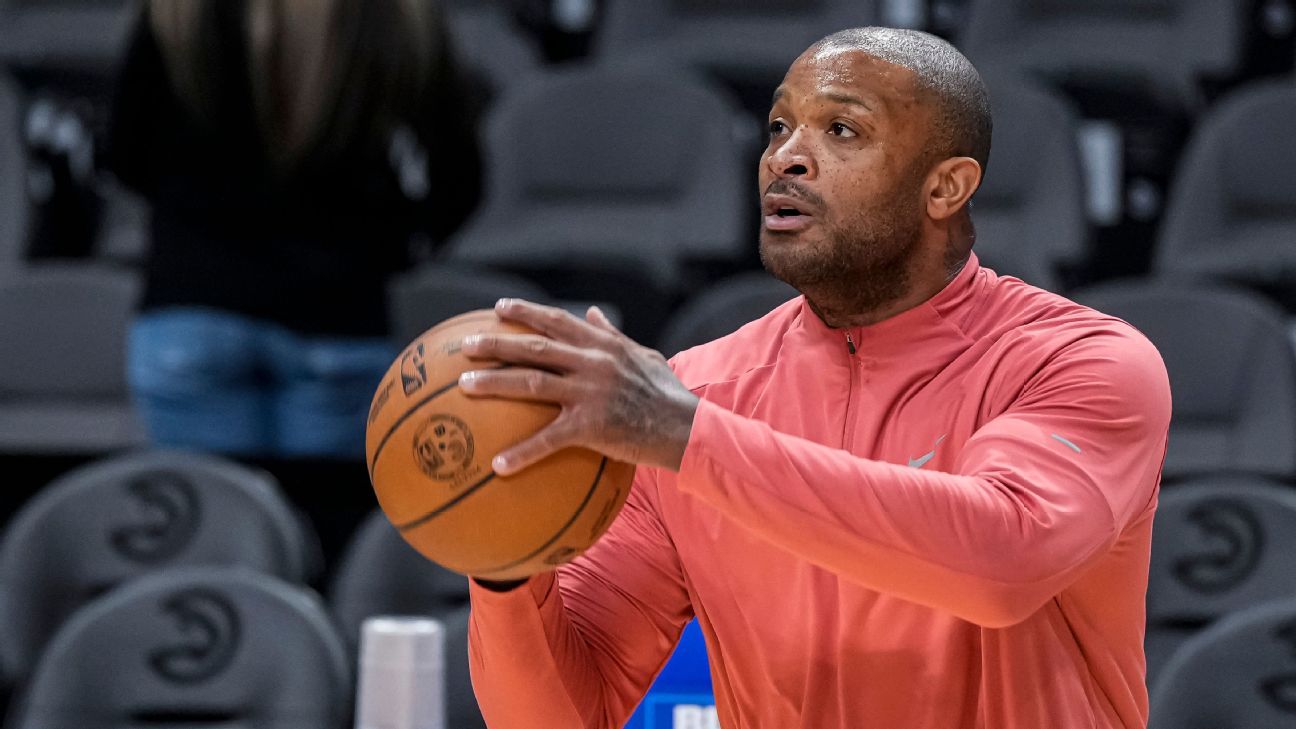
Australia 288 (Coulter Nile 92, Smith 73, Brathwaite 3-67) beat West Indies 273 for 9 (Hope 68, Holder 51, Starc 5-46) by 15 runs
As it happened
Nottingham is where, for most of recent history, Australian teams have come to die. They fell narrowly short in a 2013 Test match, before being destroyed by the swinging ball on a crazed morning in 2015, then beaten to a pulp by England's batsmen in an ODI last year. Against West Indies they seemed destined for a similar fate, losing four early wickets as the ball pranced, swung and reared at helmets and throats.
Somehow, though, Aaron Finch's men scrounged their way to a 10th consecutive ODI victory, something achieved through a combination of efforts that will please the coach Justin Langer no end. For all their top order woes, the Australians were resourceful in adversity. They found restorative partnerships guided expertly by Steven Smith, extracted from Nathan Coulter-Nile the innings of his life, and, unlike West Indies, did not miss a chance in the field.
Mitchell Starc and Pat Cummins, fast, hostile and accurate, produced a pair of superb analyses, used expertly by Finch to constrain, pressurise and ultimately crush the West Indies chase. There were numerous moments across the day when Jason Holder's team looked to be in control. Each time, however, the Australians wriggled clear, in a manner that will be familiar to those who witnessed their previous World Cup victory in England, 20 years ago.
It would be churlish not to credit West Indies for providing so much that was enriching about the contest: Oshane Thomas, Sheldon Cottrell, Andre Russell, Shai Hope and Holder all had their moments. But they could not break Smith, Alex Carey and Coulter-Nile with the bat, and were always only a single bad decision from losing their wicket in the chase. Australia, facing India next, will take some stopping.
Trent Bridge had dawned fine and warm, the pitch dry and grey, but there was just enough moisture in the air to encourage Holder to send the Australians, their minds not entirely free of past horrors here, in to bat first.
Thomas' unbridled pace and uncontrolled swing were summed up by five wides first ball and then a scorching, swinging full ball that Warner barely jammed down on, only to find that the umpire had signalled no-ball. If expensive, he had shown that the ball would swerve and bounce, and in the third over he found the ideal line and length to find the edge of Aaron Finch, who next to some of his recent dismissals by a new ball had to be regarded as blameless.
David Warner, squeezed between discretion and valour, then chose the wrong Cottrell delivery to slash at, slicing a catch to gully, signalling a short-pitched assault on Usman Khawaja. Hit on the helmet and forced to retire hurt in the two teams' warm-up game in Hampshire, he was struck on the gloves and grille by one from Thomas that sent the team doctor Richard Saw jogging onto the ground, then made to wear another by Russell.
ALSO READ: Kimber: Thomas the Tank, Andre the Giant, Sheldon the Soldier
Khawaja's response, if psychologically logical, was unbecoming of a No. 3 batsman, taking a step to square leg and trying to drive the next full and wide ball. An edge and a sublime diving catch by Hope had Australia opened up, and the breach grew wider still when Glenn Maxwell, no master of the short ball himself, chose to try to hook Cottrell's bounce and angle across him, skying a far simpler catch for Hope. At 39 for 4, West Indies were exultant, Australia facing flashbacks to 60 all out.
Marcus Stoinis at least accompanied Smith while that milestone was crossed, but after he short-armed a pull shot to midwicket when cramped by Holder, Carey joined his former captain and immediately dialled down the urgency, as both batsmen tried simply to survive for a while. Seven runs accrued in their first six overs together, the sort of rate seen when Steve Waugh and Michael Bevan tried to manipulate the net run-rate in a match between these two sides at Manchester in the 1999 World Cup, before Carey began to stretch out.
His free swings of the bat over point and gully started to begin the innings' regeneration, while Smith at the other end showed the patience and determination of a man for whom international batting is still a luxury he has only recently been able to enjoy again. Fifty-seven from the next seven overs signalled Australia's re-entry to the ring, and though drinks broke Carey's concentration and reaped a fiddly edge behind off Russell, Coulter-Nile was to unveil a power game hitherto limited largely to Perth club cricket and the odd BBL cameo.
The early balls were mainly short, and Coulter-Nile played them with a good deal of awkwardness. But that storm passed, some full balls brought boundaries, and Smith rotated what little strike he could find to feed the West Australian's power game. His previous best for Australia, 34, was obliterated. Next was 64, his best in all forms of senior cricket, it came and went. Smith, having been so assured, so measured, was disposed of by a wondrous take from Cottrell at deep backward square leg, running to clasp the catch in one hand then tossing and collecting to beat the encroaching threat of the rope.
Watch on Hotstar (India only) - Sheldon Cottrell's wonder catch
In the end, Coulter-Nile made it as far as 92, and Australia to 288. Less than they had expected but, from 39 for 4, far more than they might earlier have hoped for. The early wicket of Evin Lewis, edging as Cummins slid the new ball across him, added to the difficulty of the chase, but the curious case of Chris Gayle and Chris Gaffaney was highly watchable at the other end. First, Gayle swung at Starc, the sound of wood was apparently heard, and the umpire's finger went up. A review showed that the ball had brushed not bat but stump. Next, Starc fired full but down the leg side. Appealing when the ball struck Gayle's pads, Gaffaney raised his finger again, Gayle immediately reviewed, and the ball was missing leg comfortably.
Fifteen came from Cummins' next over, most of them flailed away dismissively by Gayle, before Starc was again full, fast and in the vicinity of the stumps. This time he hit Gayle's back pad in front of leg stump, and despite a third review of an lbw appeal, ball-tracker showed the some of leg stump to be hit, meaning Gayle was gone, but not the West Indians' sole review. Only adding to the murk was a subsequent replay showing Gaffaney had missed a big no-ball the delivery before the wicket.
Hope then formed three stands of import with Nicholas Pooran, Shimron Hetmyer and Holder, but all were ended just when full control was assumed. Pooran, so fluid in attack, was done by Zampa's drift and Finch's outstretched hand at point. Hetmyer was run out by Cummins' mobility and Hope's yes/no call. And Hope mistimed the excellent Cummins, on whom Finch leaned heavily inside the first 35 overs. But Holder was fluent, though something of a spectator for Russell's brief and briefly impactful stay.
It was spectacular, but all too short for West Indies. Russell hammered Zampa into submission, then next over against Starc could see only the boundary. A play and miss, an abortive hook, a middled drive flashing past mid off, then a top-edge that swirled before being very well held by Maxwell. The Australians celebrated wildly, then worked on cornering Holder and Carlos Brathwaite. At 53 needed from 38 balls, they were close to pressuring a wicket, only for Brathwaite to rouse himself.
A mighty six, pulled well and truly into the crowd at midwicket, was to be followed by patience to see off the dangerous Cummins. Finch had left himself with five overs to be shared between Starc, Coulter-Nile, Stoinis and Maxwell, and 38 runs to defend. Going for wickets to settle the matter, Finch called up Starc and was rewarded when Brathwaite and then Holder both failed to find timing when trying to find the boundary. Scrounging, fighting and scraping, Australia went to two wins from as many games, and some way to rewriting their story at Trent Bridge.















 Phone: (800) 737. 6040
Phone: (800) 737. 6040 Fax: (800) 825 5558
Fax: (800) 825 5558 Website:
Website:  Email:
Email: 






